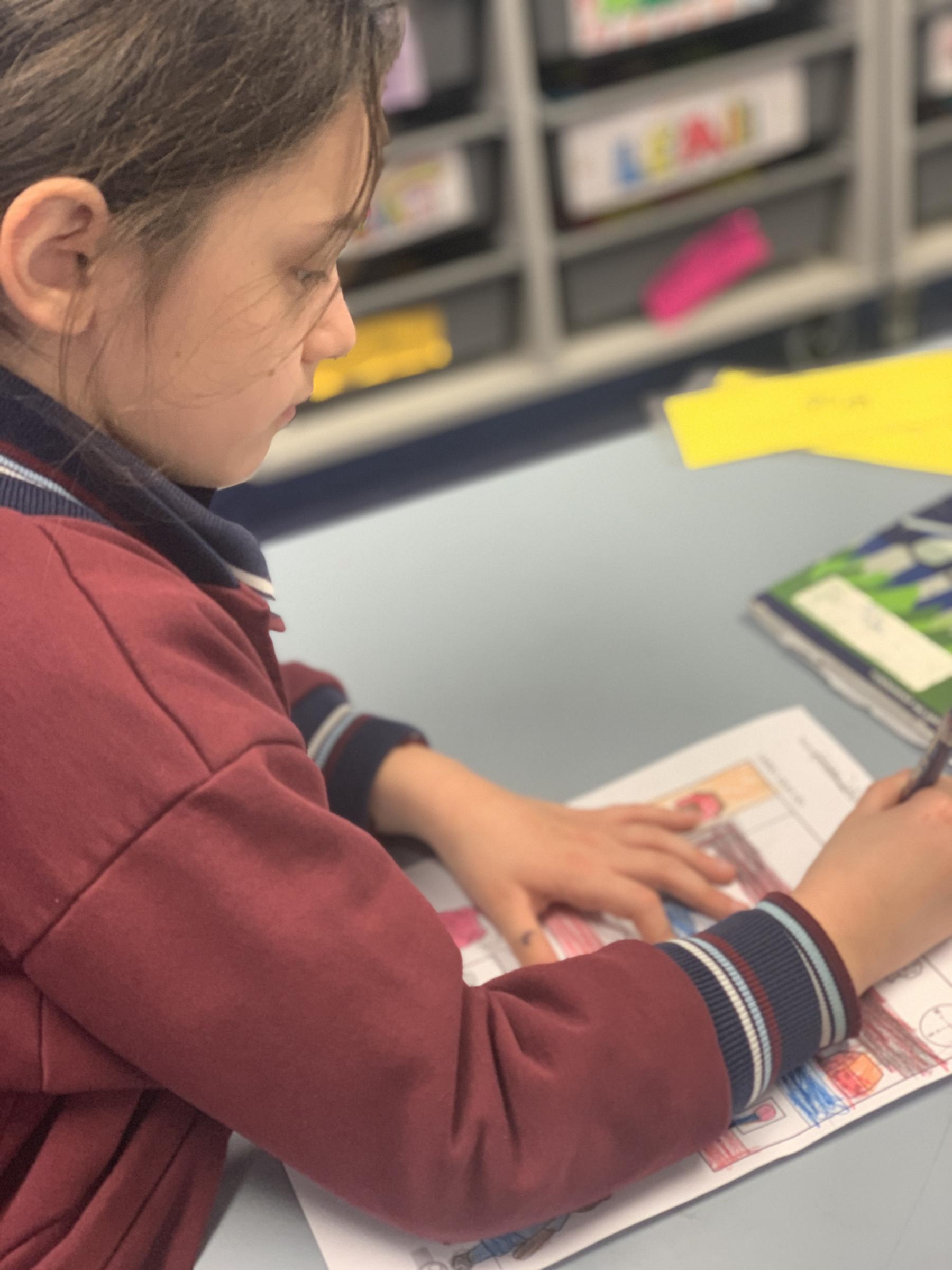Curriculum Corner

Helping your child learn to write - (Part 1, The early years)
Learning to write begins with scribbling and drawing. This is an important first step and should be encouraged. The next step is to encourage your child to write letter-like shapes, before moving on to practise writing the alphabet – both capitals and lower case letters. After this, encourage your child to write sentences containing short words.
If your child cannot write yet, you could write for them. Here is a strategy:
- Ask your child to talk about an experience or something that interests them
- Ask your child what part of the conversation they would like you to write down
- As your child is talking, write down their ideas. Use their language
- Ask your child to describe back to you what you wrote down, or ask them to read back the writing
- Your child may want to draw a picture or create something to match the writing.
Encourage your child to take over some or all of the writing when they feel confident. When your child starts writing, try the following:
- Discuss the topic to give your child some ideas to explore. This gives them confidence to begin writing
- Teach your child any vocabulary they might need
- You can encourage your child by writing on a similar topic alongside them. Then you can share your writing with each other and discuss the differences
Here are some general tips to help your child when writing:
- Make sure you give your child the necessary resources, such as pens, pencils, paper or notebook, and a desk. Creating a special ‘writing box’ to store your child’s pens and pencils helps them see writing as an important activity
- Support your child to read their writing aloud
- Encourage your child to create a picture, drawing or collage that visually represents their ideas
- Always proudly display your child’s work in a prominent position in your house. This will give them confidence, and demonstrates the importance of writing
- Create an ‘ideas bag’ or ‘ideas folder’ to use as a writing prompt. To inspire writing ideas, collect objects such as photographs, pictures cut from magazines, brochures, movie tickets, or any other found item.
Writing about experiences and interests
Topics might include:
- a piece of writing about a recent experience, such as a wedding or birthday party, or an excursion. For example, a trip to the museum could result in recounting the day’s activities, a report about dinosaurs, a report about “The Best Thing I Learnt Today,” a short story about a family of dinosaurs, or a written list of exhibitions
- something that interests them. Your child could create a poster or a short article on a hobby or other interest
- a dream or memory they have discussed recently.
Writing creatively
As creative writing is fun, it is an excellent way to foster a love of writing. It also helps develop your child’s imagination, which has been proven to be important in critical thinking and problem solving. You can use a book you have recently read together as a source of inspiration, or create something new.
Some ideas for writing creatively include:
- Create a short story in cartoon form
- Cut out pictures of people from magazines and create speech bubbles and dialogue
- Create your own superhero and have them go on a short adventure
- Use artworks found on the web, such as paintings and photographs, as inspiration for a story
- Write a story or create a cartoon together by taking turns at writing sentences or cartoon cells
- A simple story structure involves a character who has a goal (for example: to win the football match; to find a lost dog; to save the world) but faces problems in achieving that goal. This structure can be the basis for a short story you write together.
Opportunities to write every day at home
Like reading, writing with your child should become an everyday activity at home.
Try some of these writing ideas:
- Write a shopping list or add items to a list
- Keep a board to write and read family messages
- Give your child a pad of sticky notes to write reminders for themselves
- Plan and write your weekly menu together
- Write captions for photographs in your family photo album
- Write labels for your child’s art works and creations
- Make words using magnetic letters and stick them on the fridge
- Make and write greeting cards, birthday cards, and thank you notes
- Keep a family calendar on display and write down family events.
Writing Parent Information Session
Come along on Tuesday 20th August @ 5:30pm to our parent information session to hear more about the Writing program at Weeden Heights PS in detail. Hear from our Literacy leader about how to support your child at home with writing and how to provide opportunities to develop their skills. This will be happening during Book Week so look out for more exciting literacy activites that will be happening all week.
